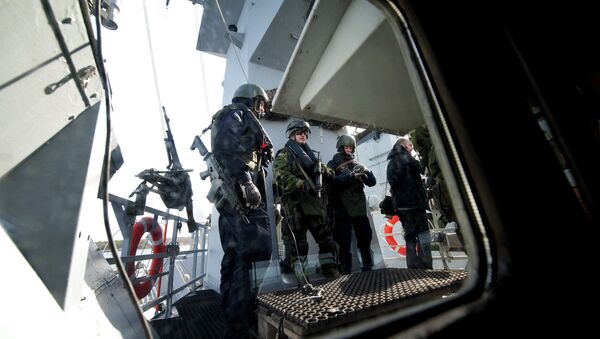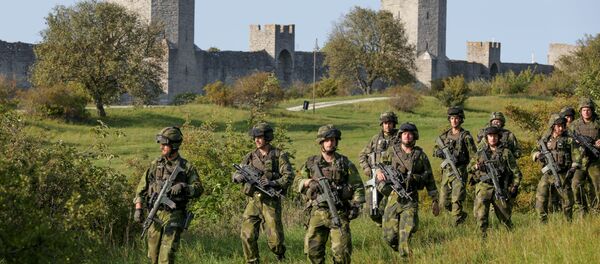"If you seek a denouement in the Baltic Sea region, maybe you should take the Finnish route," al-Fakir pointed out, obviously hinting at the policy of "Finlandization," which emphasizes the necessity to maintain good and trusting relations with the eastern neighbor.
According to al-Fakir, the idea of the aggressive eastern neighbor led by President Vladimir Putin, which is being enforced across Scandinavia, is nothing new. In recent years, the anti-Russian discourse has intensified further, featuring a never-ending supply of news about hostile Russian activities, illegal flights over Swedish territory, political pressure and Russian agents harassing military personnel. The war of words always leads to the same conclusion: Sweden should join forces with NATO and seek US defense assistance, while sneaky Russia plans attacks in the Baltic Sea region.
The main indicator of Sweden's paranoia, however, are the notorious submarine hunts performed by the Swedish Navy ever since the Soviet S-363 submarine ran aground off the southern coast of Sweden. Since then, Sweden has found a number of "Russian subs" which later proved to be herring shoals, minks or even its own vessels. In 2014, yet another "submarine" was sighted outside Stockholm. The Swedish daily Dagens Nyheter was the driving force behind the scoop, yet failed to produce anything more substantial than grainy images and paranoid ravings by locals.
*Kommer ut*: http://t.co/oBNe7ORi98 pic.twitter.com/JMqiv6XHDu
— Den ryska ubåten (@RyskaUbaten) November 14, 2014
This time even international media expressed reasonable doubt. The American satire program Last Week Tonight with comedian John Oliver even made a feature film called "JÄWS" (the Swedish version of Stephen Spielberg's classic). Oliver quipped that the blurred images might as well feature a whale with a toupee.
Earlier this year, a witty article by award-winning journalist Mattias Göransson in the Filter magazine pointed out that despite Swedish attempts to prove that Russia allegedly maintains a "troll factory," Stockholm is not itself averse to propaganda. The brainwashing campaign resulted in new orders for the defense military worth billions of kroner. This very idea was perceived as provocative in a country, where authorities, the armed forces and the media are united in pumping up the Russian threat.
Sweden's inadequate attitude to Russia is put in a nutshell in the Swedish word ‘rysskräck,' which means fear of Russia or things that are Russian. Historians argue that the term originates from the traumatic memory of Russian raids on coastal Sweden during the Great Northern War (1700-1721).






